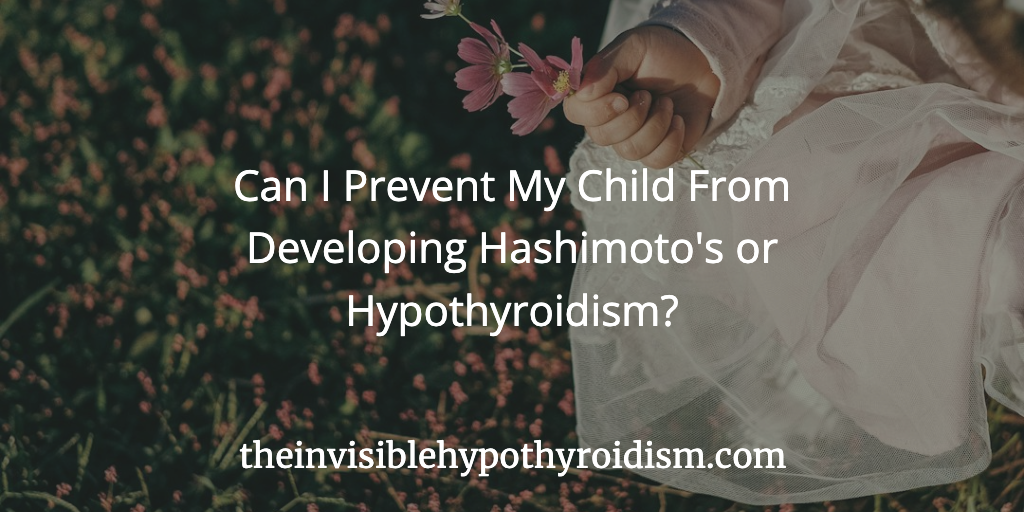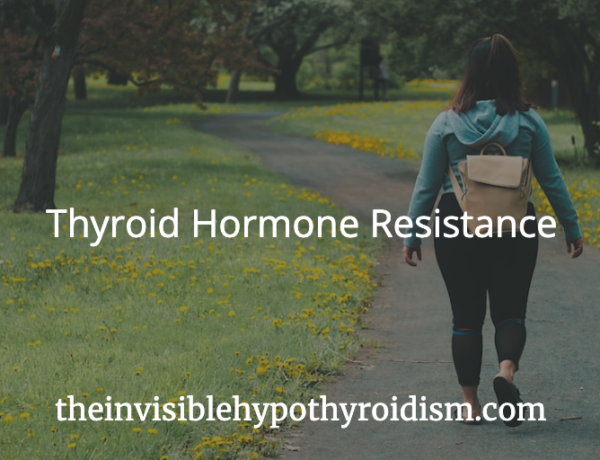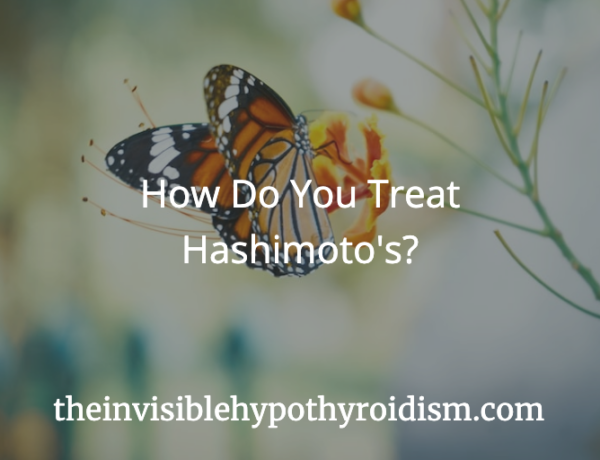As well as being asked this question by many readers, it’s also one I wondered before having my own children.
Is there a way to prevent them from experiencing all the thyroid issues and symptoms I have?
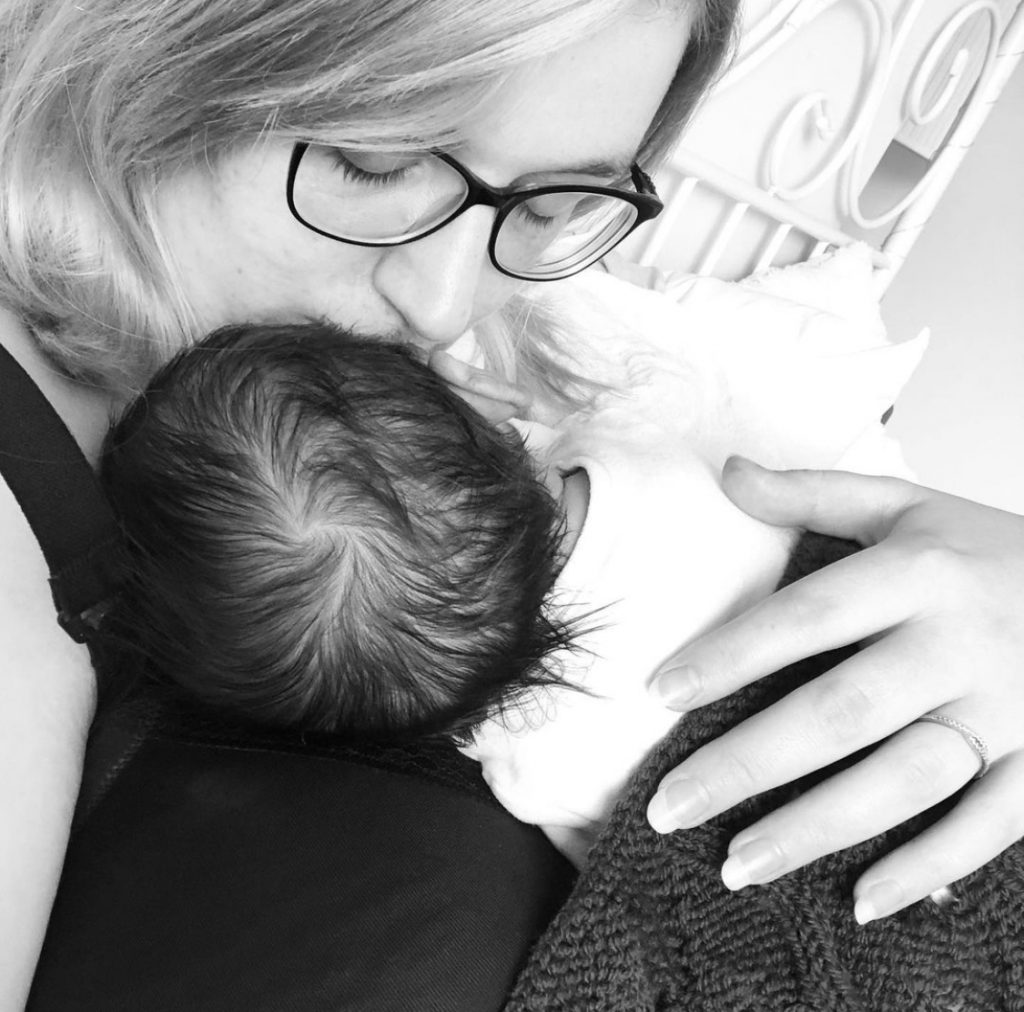
Wishing a Different Future
For so many of us, it was a long journey to the diagnosis of Hypothyroidism and/or Hashimoto’s and possibly an even longer one back to good health. (getting on the right meds – and dosage – for you can take a while, as can finding a good thyroid literate doctor and implementing any lifestyle changes and other jigsaw puzzles pieces you need)
I personally didn’t just struggle with my physical health, by my mental health was also hugely impacted by an undiagnosed and non-optimally treated thyroid condition for years.
The thought of any future children having the same experience as me used to give me anxiety. Of course, no parent wants their child to suffer with something that could be more easily diagnosed and treated. So naturally, we can wonder whether there is a way to avoid them developing a thyroid condition at all.
Can We Prevent Thyroid Issues?
Most commonly, Hashimoto’s Thyroiditis is the cause for hypothyroidism, in around 90% of cases. [1]
This autoimmune condition causes the thyroid gland to lose function as time goes on and thus leads to hypothyroidism. So for most of us, it is actually the triggering of Hashimoto’s that we are talking about.
It is believed that those of us carrying the genetic makeup to develop Hashimoto’s trigger the condition by switching it ‘on’.
We know that there is a combination of genetics and environment at play for triggering a thyroid condition, and that there are often multiple triggers / contributors too.
The most common triggers are:
- Hormonal shifts (such as puberty, starting or stopping hormonal contraceptives, pregnancy, postpartum and the menopause)
- Big life stressors (such as bereavement, family dysfunction, abuse)
- Adrenal stress in the form of continued high cortisol levels for a long time (often associated with people who feel anxious for a lot of the day, burn the candle at both ends and do not have time for rest, downtime and hobbies)
- Iodine deficiency or excess iodine
- Other low nutrient levels, such as Vitamin D or Iron
- A blow to the immune system such as a severe illness or virus
- Gut issues / poor gut health
So now that we know what these are, we can just avoid them, right?
It’s probably not that simple for most of us.
Whereas we may be able to avoid some possible triggers, there are also some that we just cannot avoid entirely.
Therefore, it is impossible to completely prevent our children from developing a thyroid condition if they have inherited the ability to do so from us.
For example, life is stressful. We can’t prevent all terrible things from happening that may cause enough of a stress response that a thyroid issue is triggered. We also cannot prevent them from catching any illnesses, or prevent puberty!
If you are currently pregnant and wondering if there is anything you can do while pregnant to reduce the chances of your child having thyroid issues, then there is evidence that the mother maintaining adequate levels of thyroid hormone throughout pregnancy reduces the chances of a child being born with congenital hypothyroidism or health issues themselves. Therefore, regular blood testing (often every 4-6 weeks throughout) and suitable medication dosage adjustments can be very beneficial to the health of the child. Please read more on this here.
What Can We Do To Limit The Chances?
We can certainly look at the possible triggers and ask ourselves what we can do to reduce the chances of them triggering a thyroid condition.
Nutrition
For example, a focus on good nutrition, meaning that we eat everything in balance, focusing on whole foods wherever we can, to support good gut health and nutrient levels, reducing the risk of these becoming triggers.
Some thyroid sources will say that children should be eating gluten-free, dairy-free, soy-free and more to avoid triggering a thyroid issue, but there is a major lack of evidence to suggest this works or is really necessary. I’m very cautious about restricting children’s diets because it may lead to nutritional deficiencies, as well as disordered eating behaviour that can be hard to undo later on. Read more about my stance on diet here.
Obviously, if your child has food allergies, intolerances or sensitivities, then work with a professional to keep these properly managed.
Adrenal Health
Instilling a respect for movement and exercise, finding what works for our bodies whilst also being mindful of over-exercising can be helpful.
Teaching healthy sleep habits (how to prioritise and value good sleep), that we need time for rest and hobbies and anything else that keeps our cortisol levels under control for most of the time. (Cortisol is a very useful hormone and its presence is not an issue unless levels of it are excessively high for long periods of time)
We can also aim to equip our children with the knowledge they need to process and deal with life’s stressors, as well as the full range of emotions that we feel as humans. Processing our emotions healthily can teach us how to be much more resilient and well-balanced, with better mental health outcomes.
Books I have found helpful as a parent teaching this in my children:
Conclusion
We may not be able to 100% prevent our children from developing thyroid issues like us, but these things could go a way in reducing the chances, or delay its onset.
After all, since many cases are triggered by hormonal shifts in pregnancy, postpartum and menopause, these later causes are not entirely preventable. But we can be aware and make our children aware also.
If Hashimoto’s, Hypothyroidism or other thyroid conditions run in your family, you can be aware of any signs in your children and help them to be aware of the signs and symptoms too, so they do not go undiagnosed for long. We can have their thyroid levels tested as children and teenagers so we have a baseline of what is their ‘normal’, but also see any early warning signs of things changing.
My book “Thyroid Superhero” teaches children about the signs and symptoms.
My Personal Experience
I triggered Hashimoto’s in my mid-teens by hammering a lot of triggers at once.
I had two separate, severe strains of flu in the space of 18 months. I was also raised in a very dysfunctional, high-stress family environment and home. I did not sleep at all well, and had never learned how to deal or cope with stress and tricky emotions. This peaked in my teen years and thus, I triggered my thyroid issues.
With my own children, I am focusing on good nutrition, teaching them to respect sleep and rest as well as finding exercise and movement they love and to speak about their feelings – the whole range of emotions – as well as find healthy ways to process them and build resilience.
I protect them from the dysfunctional upbringing I had and try my best to parent in a way very different to what I experienced, but the kind of parenting and home life I needed as a child, which, had I received myself, I may not have triggered my thyroid issues or perhaps they’d have been triggered later on life, giving me more time to enjoy life carefree.
I also feel confident that should they develop a thyroid condition, I will be their best advocate for testing, treatment and teaching them all I know so that it won’t impact their life much at all.
What about you? You can add to the conversation below.
References:
[1] https://www.ncbi.nlm.nih.gov/pubmed/3066320
See also:
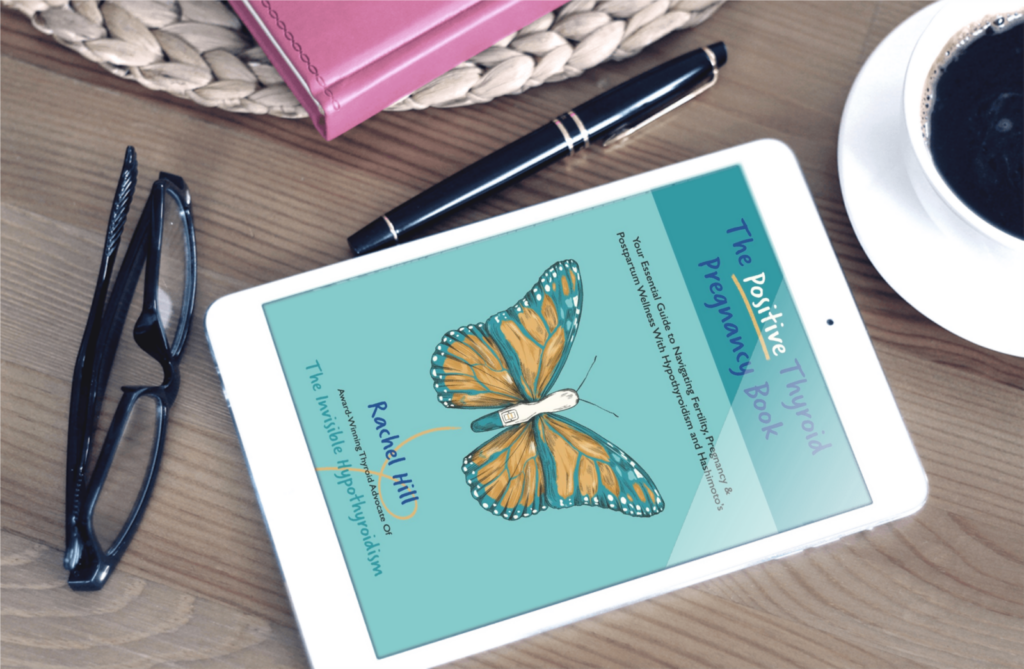
See Also:
The Positive Thyroid Pregnancy Book: Your Essential Guide to Navigating Fertility, Pregnancy & Postpartum Wellness With Hypothyroidism and Hashimoto’s which covers Rachel’s full two pregnancies with hypothyroidism and Hashimoto’s, on Levothyroxine and Armour Thyroid NDT and everything YOU need to know for the best start for you and your baby.

